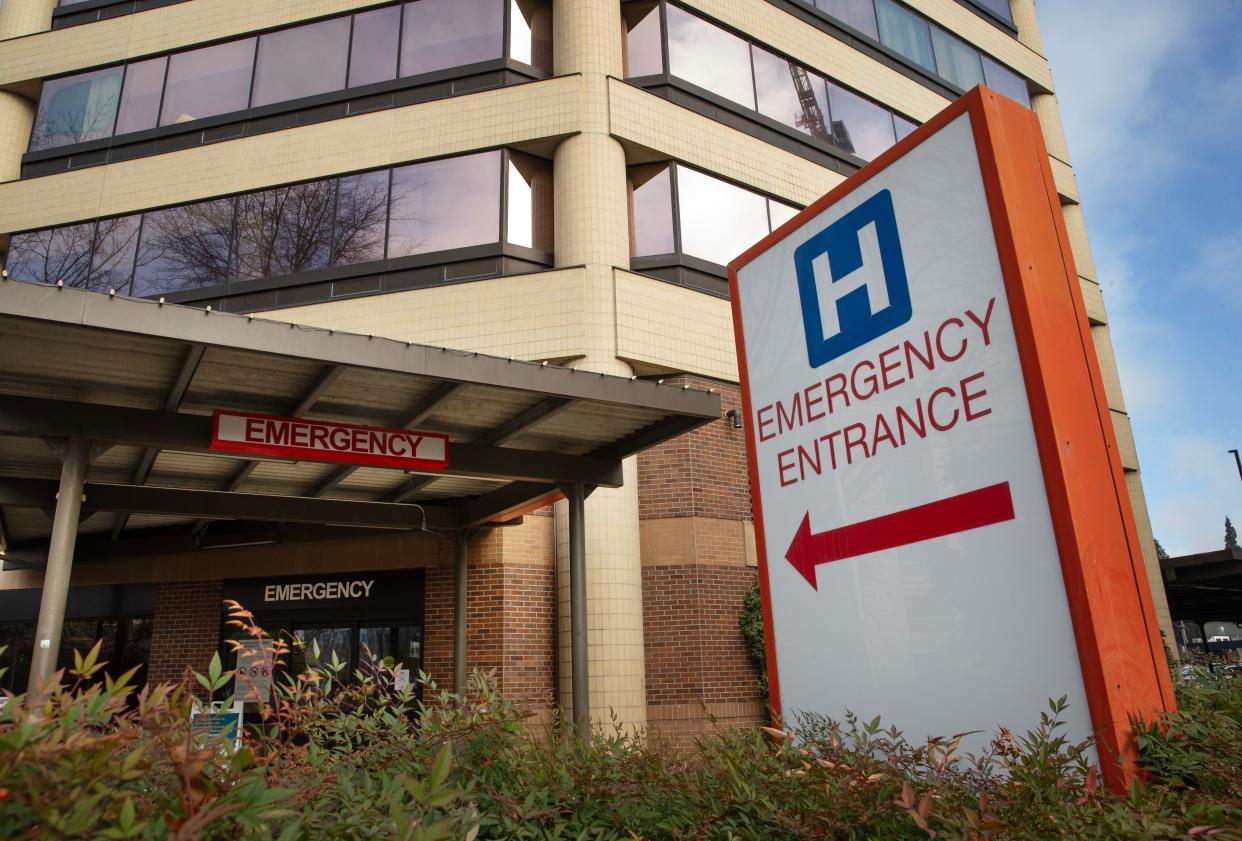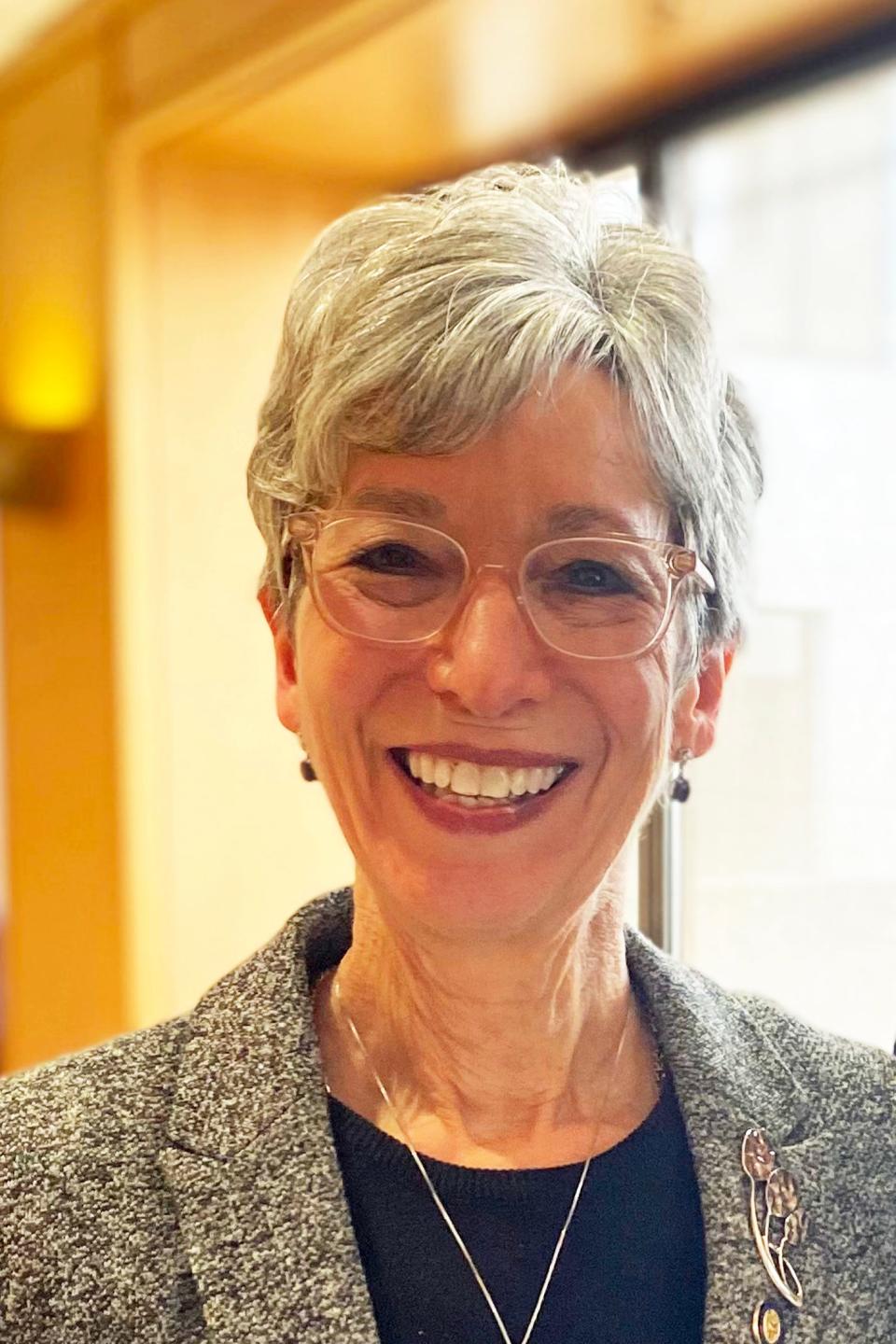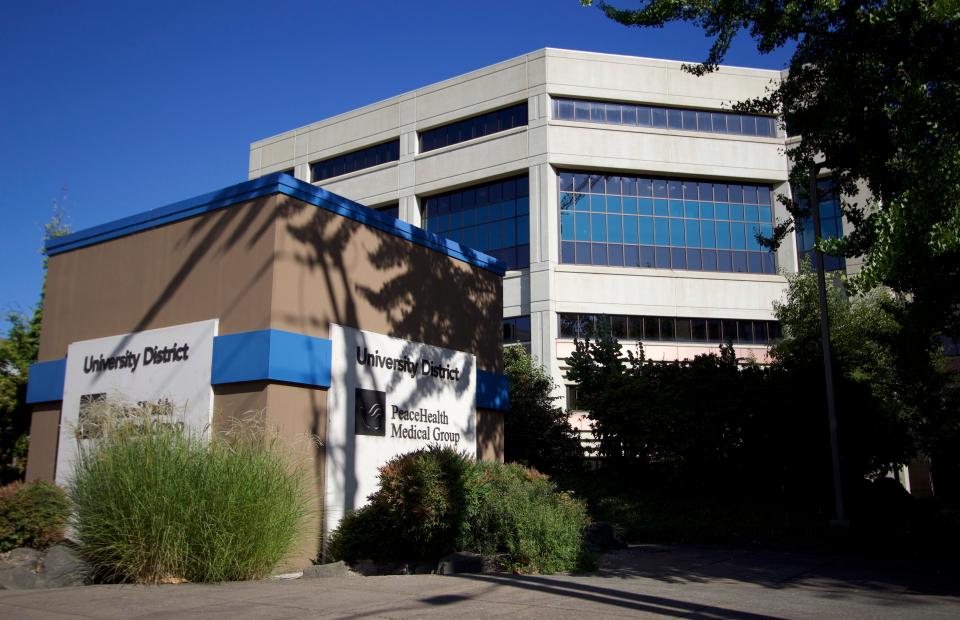How a bill in the Oregon Legislature could help Eugene recover from its hospital closure

- Oops!Something went wrong.Please try again later.
The bill that members of the Oregon Legislature have described as their response to Eugene's hospital closing made it out of committee Wednesday.
House Bill 4136, sponsored by Rep. Nancy Nathanson, D-Eugene, and backed by five other lawmakers with ties to the area, includes money to fund an extra Eugene-Springfield ambulance crew, a new path for out-of-state nurses to get temporary licenses and an "innovation fund" to help Lane County pay for pilot programs meant to reduce the area's reliance on hospitals and emergency medical services.
Members of the Oregon House Behavioral Health and Health Care Committee voted unanimously on Wednesday to advance the bill to the house floor and to the Ways and Means (budget) committee, with a committee recommendation in favor of passing.
Citing declining numbers of patients and significant costs, the PeaceHealth Sacred Heart Medical Center University District officially closed its emergency department in December, leaving the second-largest city in Oregon without an emergency room.
Eugene-Springfield Fire extra ambulance unit funding
Following the hospital closure, Eugene-Springfield Fire added an extra ambulance unit to help make up for the increased transport distance. HB 4136 would give Eugene a one-time $1.3 million expenditure from the state to keep that crew funded through 2025.
The University District hospital closure "immediately generated increased consumption of EMS unit availability," said Chris Heppel, who leads the division of Eugene-Springfield Fire that includes emergency medical services.
"Patients originated in Eugene who would have gone to University District added 27-30 minutes per transport, which is approximately 2,000 unit hours per year," Heppel told legislators. "Our additional (ambulance) unit that's in the bill would provide 12 hours of additional unit time daily, which is about a 10% increase in our day-time staffing and help blunt the increase in unit utilization associated with the hospital closure."

Oregon bill aims to alleviate the nursing shortage
One factor PeaceHealth cited for wanting to close the University District hospital was its shortage of health care workers and a desire to consolidate staff into one location.
HB 4136 aims to alleviate the nursing shortage statewide by letting Oregon grant 90-day provisional licenses to nurses licensed in other states or U.S. territories that who to begin working in Oregon while they wait for their applications to process.
Related: PeaceHealth home care nurses strike: Picketers demand equal pay, better staffing
This part of the bill was endorsed by Jana Bitton, executive director of the Oregon Center for Nursing.
"Nurses face (prolonged wait times) to obtain their licenses post-application," Bitton wrote to legislators. "(HB 4136) supports urgent staffing needs by streamlining the process for Oregon employers to hire nurses from other states, thereby enhancing the state's healthcare responsiveness."

Innovation fund would give Lane County Public Health $3.2M
Nathanson expressed the most excitement toward the proposed "innovation fund" that would give Lane County Public Health $3.2 million to fund pilot programs meant to free up capacity in the emergency medical system.
The county would have the authority to choose which programs to fund, but the bill explicitly lists four examples the fund "may include, but (is) not limited to." Eugene-Springfield Fire Chief Mike Caven described some of these ideas in presentations to the Eugene and Springfield city councils:
Nurse advice line
Caven described this program as additional help for 911 so that emergency medical services are required to respond to fewer calls. He said a nurse advice line, also called nurse navigation, would let a 911 dispatcher forward a call to a nurse-staffed call center, where the nurse can help the caller find a non-hospital health resource that might be more appropriate to their situation.
Community health care response
Caven described the proposed community health care response unit as "a two-person squad" staffed by people who would do a similar job of navigating people towards aspects of the health care system besides the emergency room.
"We have a lot of … of community members whose needs aren't being met and so they're accessing the more critical emergency access systems far more frequently." Caven said, "and so they would be able to help them access that space."
Alternative medical transportation
One factor keeping ambulances occupied is that "people utilize EMS when they don't have another way to get to the hospital or to urgent care," Caven told Springfield city councilors.
A proposed solution is a ride-source program to provide medical transport to people who don't need an ambulance. "So if you need a ride to a clinic, a ride to urgent care or a ride to the emergency room that doesn't require an ambulance, you can get to and from," he said.
Programming to improve access to health care while reducing emergency department utilization
"Some patients that are transported to the hospital ED could likely be taken care of just as well or better by a different response," Nathanson told the committee. The idea behind the innovation fund is to find programs to let officials "know which (patients), and how do we get them to appropriate care or get appropriate care sent to them?"
The bill also tells Lane County to present a report to the state Legislature in 2025 on which programs were successful and could be replicated in other parts of the state. "Learning from this investment is a core component of the pilots, enabling other communities to consider these or similar approaches and expand successes state-wide," Nathanson said.
Next steps
Because the bill will spend money from the state's budget, the Legislature's Ways and Means committee must review it before the House as a whole can. This session was not scheduled as of Thursday afternoon.
HB 4136 was one of two points of overlap in the lists of state legislative priorities approved by the Eugene City Council and Lane County Board of Commissioners before the start of the session. The other overlapping priority was support for Lane County's proposed mental health stabilization center.
Alan Torres covers local government for the Register-Guard. He can be reached over email at atorres@registerguard.com or on X @alanfryetorres.
This article originally appeared on Register-Guard: Oregon bill would help Eugene after PeaceHealth hospital closure

